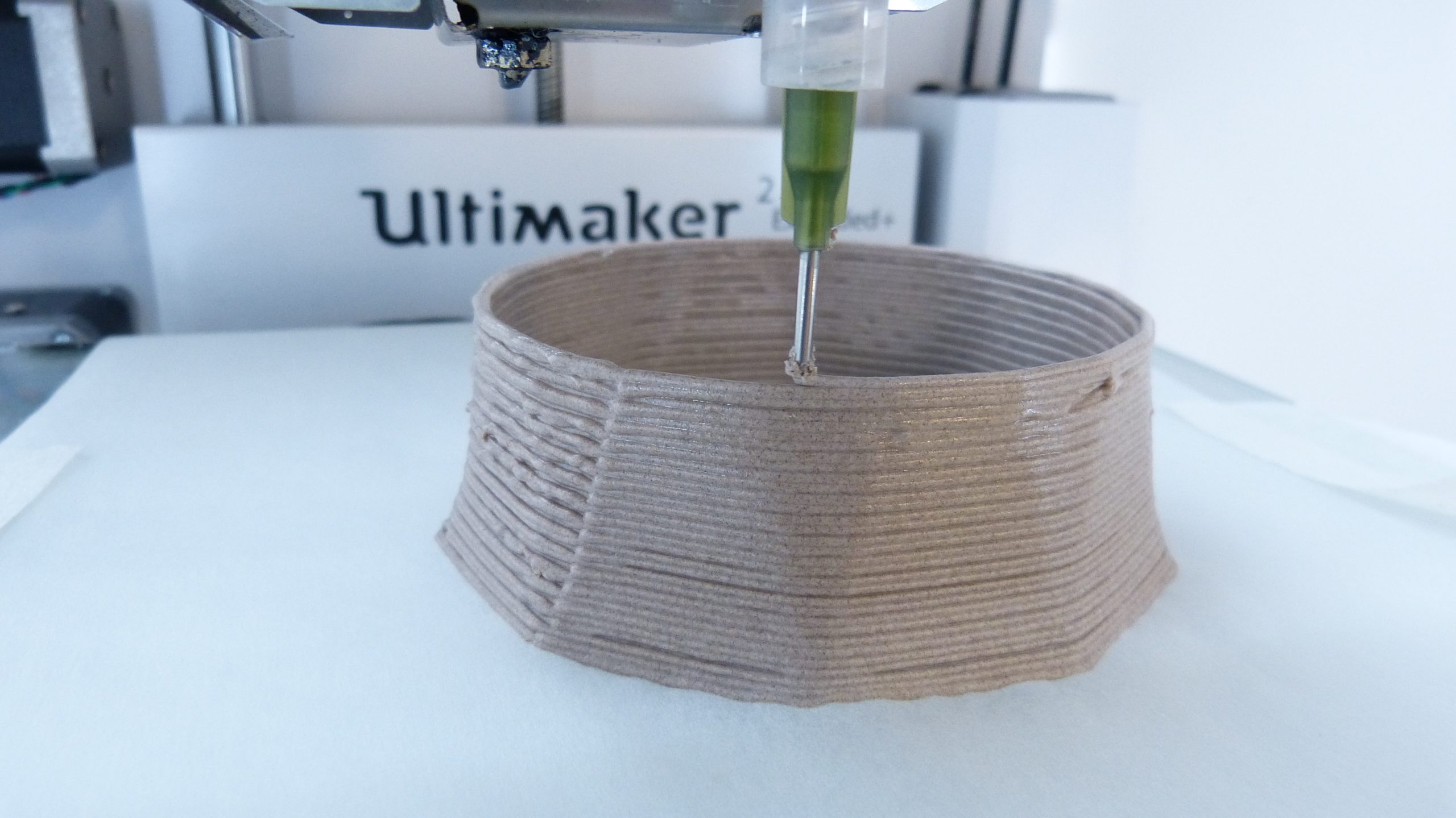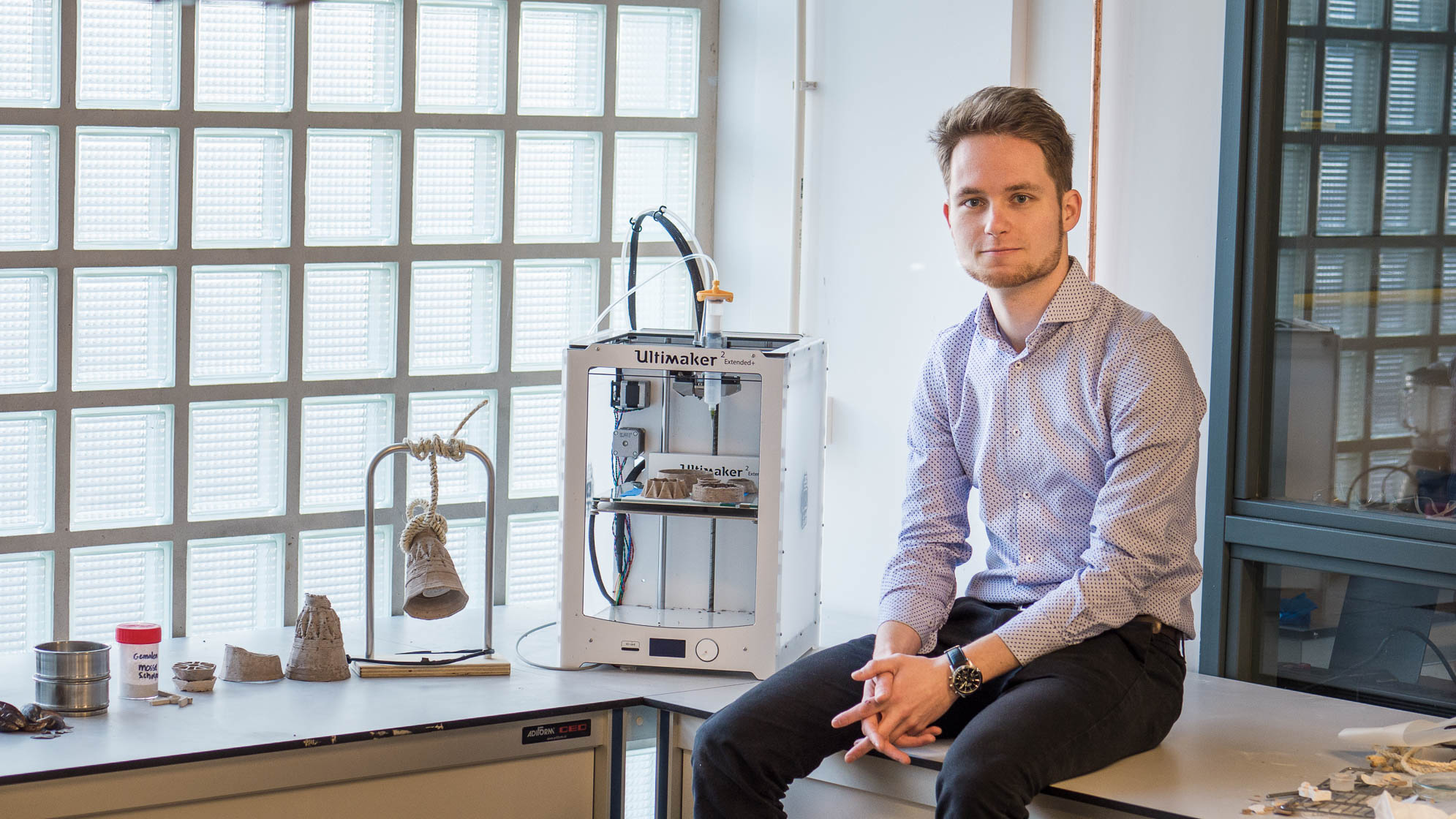A ceramic-like material made from mussel shells that can be used in 3D printing and recycled over and over again. Industrial Design Engineering student Joost Vette (24) turned a waste product into something useful.
Joost Vette next to his 3D printed lamp covers and texture samples, made from crushed up mussel shells. (Photo: Chris Reichard)
- Name: Joost Vette
- Study: Industrial Design
- Title: Shining Light on Mussel Shells
- Grade: 9
The Netherlands, in particular the province of Zeeland, produces millions of mussels every year. The meat is consumed and the shells are discarded. It is the perfect example of a take-make-dispose model.
Joost Vette believes in a circular economy, a model in which there is no waste and he believes that 3D printing can play a big role in this. “It enables local manufacturing, eliminating transportation costs. Even better is if you can use local products and recycle them locally, closing the material loop.”
Earlier research proved that ground up mussel shells can be used in 3D printing. Vette took it upon himself to create the perfect recipe, using only local and easily recyclable products.
To do so he turned to cookbooks. “If you heat the shells in the oven, it reduces any left-over meat and makes the shells very brittle. You can then blend them, even in a kitchen blender. One challenge was finding the right viscosity. The material has to come out of the nozzle easily, but not spread everywhere.”
‘A lot of materials become weaker when recycled, this one does not’
To find the best blend to print with, Vette tested different materials like starches and seaweed. Sugar, ideally from sugar beet, turned out to be the winning component to create a smooth paste.
Anything printed with the material can be recycled simply by dissolving it in water. “If you use the right amount of water, you can just pour the material back into the printer. A lot of materials become weaker when recycled, this one does not.”
After creating the right blend, Vette started looking for applications. “There are a lot of projects to make tourism in Zeeland more circular. This material could be part of that. You could print lamp covers that – when broken – could be remade locally. Another option is using it as support material in 3D printing. Water dissolves the support material, after which it is ready to be used again for printing.”
Spending months researching mussel shell paste has only made Vette more excited about the material. “I hope to continue with it professionally. And yes, I still like eating mussels!”
Elise Mooijman, freelance author




Comments are closed.